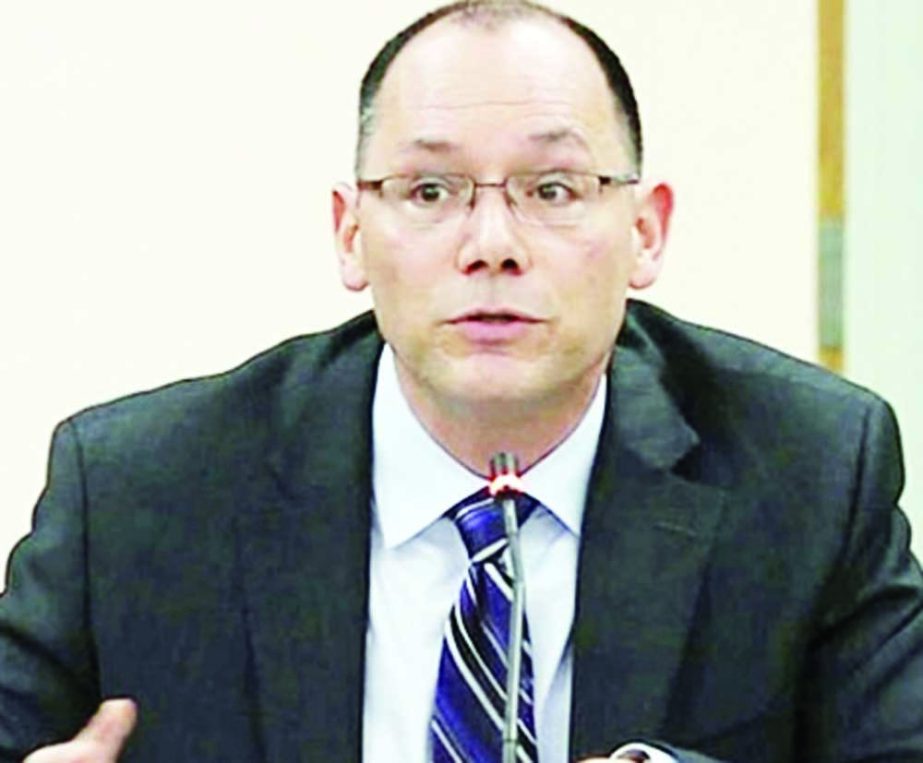
Staff Reporter :
Turning down the Bangladesh’s appeal to re-examine the sanctions imposed on Rapid Action Battalion (RAB), the United States said there is no scope to repeal the sanctions without accountability.
Soon after the sanctions on the elite force on December 10 last year by the US Government, Bangladesh has been pursuing the US government through various levels to withdraw the sanctions.
The Bangladesh government still has no such information when the sanctions will be withdrawn.
Foreign Minister AK Abdul Momen on Sunday again called upon the US government to re-examine the issue.
He said this while addressing as the Chief Guest at a seminar on ‘Bangladesh and the United States Relations, Moving towards Enhanced Cooperation and Partnership’ organised by Bangladesh Institute of International and Strategic Studies (BIISS) in its auditorium in the capital.
In the same seminar, US Ambassador to Bangladesh Peter Haas said, “There is no scope for the repeal of sanctions against the RAB without concrete action and accountability. This force will be capable of respecting basic human rights”
He, however, said despite the sanctions on RAB the bilateral cooperation on various levels between the two countries will continue. “RAB’s sanctions do not mean we cannot increase our strong law enforcement security cooperation. We will continue to work with Bangladesh to combat transnational crime and terrorism, enhance border security and prevent violent extremism,” he noted.
“We will continue our support to counter terrorism and transnational crime. The signing of a proposed memorandum of understanding will facilitate our ability to implement our anti-terrorism assistance, training programme and to donate new equipment to the police,” the envoy said.
On the next general election, Peter Haas said that his government would not take any side but expect that voters will choose their government.
“The United States will not pick a side in the upcoming elections. Our hope is simple that the Bangladesh people have a democratic process that allows them to choose their government,” he added.
“Truly democratic elections require the space for civic discourse to take place in an environment where journalists can investigate without fear and the ability for the civil society organisations to advocate broadly. It will be very clear,” he added.
Slamming his own country’s democracy, he said, “The United States is not perfect. We have embarked on our own democratic renewal. And we are inviting countries around the world to make similar commitments to strengthen their democracies.”
About the democracies of Bangladesh, he said, “We can work together to promote democracy and to protect human rights.”
About the Digital Security Act, he said, “Bangladesh government will keep its commitment to reform the digital security act to prevent future abuses.”
“I appreciate that Bangladesh will invite foreign observers during the next election. It’s important to realise that holding an election in consistent with international standards is not just about the day the votes are actually cast.
Terming US-Bangladesh relationship at a turning point, he said his government wants to increase security engagement with Bangladesh to modernise its military with the US technology.
He also said US government is ready to move the economic relationship forward between the two nations.
About labour rights in Bangladesh, the envoy said, the US is committed to supporting Bangladesh’s labour rights journey including through targeted development assistance.
AK Abdul Momen said, “US is a land of rules and justice. We hope US will not give shelter to any murderer. But unfortunately we have one proclaimed murderer in your country.”
The Seminar was chaired by BIISS Chairman Ambassador Kazi Imtiaz Hossain while BIISS Director General Major General Mohammad Maksudur Rahman delivered the Welcome Address.

